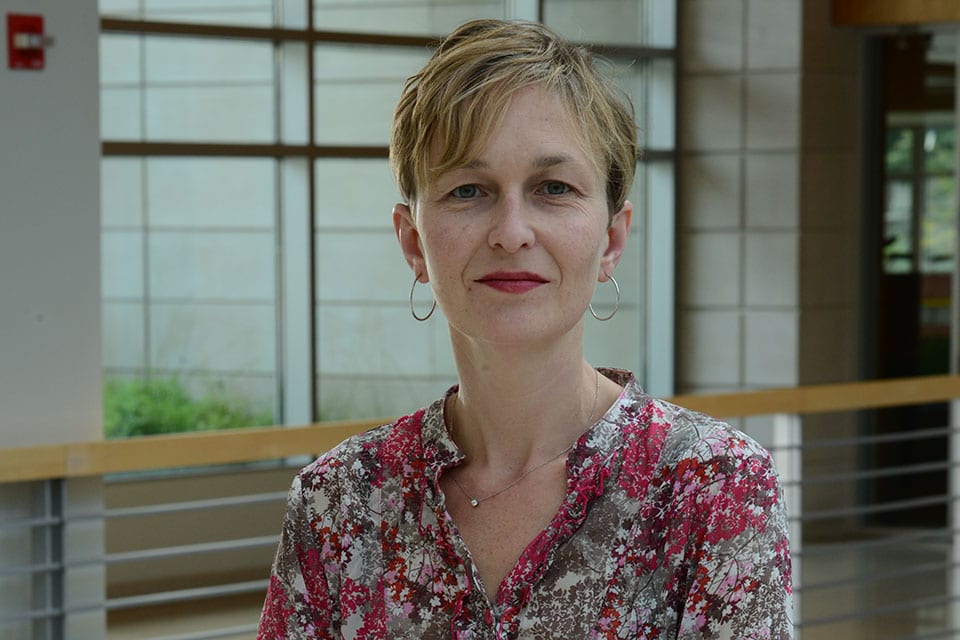The Path to Better Negotiations May Start at the Dinner Table – Chicago News

Let’s explore the most interesting stories to emerge from Chicago business schools this week.
Which Gold Medalists Do We Tweet About? Liberals and Conservatives Differ – Kellogg Insight
As cultural awareness about the often unrecognized contributions of historically disadvantaged groups continues to grow, Northwestern University Kellogg School of Management professor Nour Kteily hypothesizes that the more people prioritize social equality, the more they might actively promote the accomplishments of women and people of color.
Kteily notes, “Political liberals have a natural affinity for targets that belong to groups that they see as socially disadvantaged, and a motivation to raise these groups’ position in society. Given this, we reasoned that they would want to emphasize the good things that those who belong to groups that are otherwise overlooked are able to do.”
His study analyzes which individuals are primed to consider how underrepresented groups are overlooked and observed for their likelihood to promote a black woman faculty member according to their political ideology.
“Both liberals and conservatives shift up when they read that disadvantaged minorities’ accomplishments tend to be overlooked, but the ideological difference that exists at baseline remains,” Kteily notes.
You can read more about the study here.
Gies Creates Role of Chief Disruption Officer – Gies College of Business News
The University of Illinois Gies College of Business recently announced its newest leadership position: Associate Dean for Innovation & Chief Disruption Officer. The role will assist the business school to further innovative educational practices.
Robert Brunner, a longtime professor at the university, will ensure Gies remains up to date with current trends in technology and embraces future opportunities preemptively.

University of Illinois professor Robert Brunner has been officially named the new Associate Dean for Innovation & Chief Disruption Officer at the Gies College of Business.
Jeffrey R. Brown, Josef and Margot Lakonishok Professor of Business and Dean, extolled Brunner’s qualifications:
“Professor Brunner is an outstanding thought leader with a universal view of technological innovations. [His] extensive experience and passion make him the perfect fit as our very first Associate Dean for Innovation and Chief Disruption Officer. I’m delighted that he will be taking a more prominent leadership role within our College.”
Brunner will be tasked with identifying future challenges in business and creating unique solutions. Brunner remarks, “In today’s world, you’re either part of the disruption, or you risk being disrupted. Gies College of Business is taking a proactive approach like no one else in the country. We are not business as usual and our students will benefit greatly because of it.”
You can read more about Brunner and the new position at Gies here.
Trying to Get People to Agree? Skip the French Restaurant and Go Out for Chinese Food – Chicago Booth News
Here’s a new negotiating tactic: enjoy a family-style meal with your counterpart before making your opening bid. When people in a business negotiation share not just a meal but a plate, they collaborate better and reach deals faster, according to new research from the University of Chicago Booth School of Business.
In the study entitled “Shared Plates, Shared Minds: Consuming from a Shared Plate Promotes Cooperation,” professor Ayelet Fishbach and Cornell‘s Kaitlin Woolley examine how the way a meal is served and consumed boosts cooperation. These results show that sharing meals not only helps people collaborate better, but also reach agreements faster.
Woolley and Fishbach conducted the experiment with friends and strangers. The results found that friends arrived at a negotiation agreement faster than strangers did. However, sharing plates had a significant effect for both groups.
“The degree to which a person felt she was collaborating with her partner while eating—sharing food rather than competing for that last bite—predicted her feelings of collaboration during the negotiation phase.”
Fishbach remarks, “Basically, every meal that you’re eating alone is a missed opportunity to connect to someone. And every meal that involves food sharing fully utilizes the opportunity to create that social bond.”
You can read more about the research here.
Northwestern Kellogg Faculty Offer Career Development Advice

To develop your career, you have to take steps to make it happen—strategic ones. To help, Northwestern University’s Kellogg School of Management faculty got together, offering five pieces of advice for career development, no matter where you are professionally.
1. Build Influence in Your Organization
You don’t need to be a manager or team leader to influence your organization. Power in the workplace isn’t about coercing people. Instead, it’s about “mobilizing political support,” says Management and Organizations Professor William Ocasio.
To build this type of political capital, he recommends seeking out assignments that are likely to succeed to build your good reputation early and quickly. He also recommends understanding your organization’s culture, so that you advertise yourself appropriately.
2. Learn to Negotiate
According to Victoria Medvec, Professor of Management and Organizations, you need to learn to negotiate if you want the best assignments and promotions. She recommends thinking through what the other side needs and then presenting your skills and experience in such a way that you fill in the blanks. She also says that you need to lead the discussion by making the first offer.
“You will gain an advantage by creating the starting point, putting the right issues on the table, and being the one who frames the rationale,” Medvec says.
3. Become a Mentor
You can learn a lot by becoming a mentor. It offers many benefits, providing insight into both an organization’s political environment as well as the effectiveness of your organization’s communication strategy. According to Senior Fellow and adjunct professor Diane Brink, mentors learn to understand their organization better, and they learn new skills. Sometimes, just by talking with another person, you can figure out new tools, techniques, and applications essential to your own role.
4. Look for a Second Act
If you’ve climbed as high as you can in your given career, it’s not the end of the road. Clinical assistant professor Ellen Taaffe recommends looking for a potential “second act”—a new professional phase where you apply your skills and talents in a social or educational arena. The key is to find confidence in your story and create a larger narrative that explains who you are.
Just make sure that when you leave your current professional arena that you don’t drop all your contacts there. Instead, continue to cultivate your network and look for new doors that you can walk through.
5. Take Time for Self-Reflection
There’s always room for growth. One way to continue growing is to go through daily self-reflection, according to Clinical Professor of Strategy Harry Kraemer. He commends that you take time every night to define your priorities and hold yourself accountable. This is how leaders ward off disaster, plan for every outcome, and build stronger teams.
Some prompts for self-reflection:
- What am I proud of? What am I not proud of?
- How did I lead people? How did I follow?
- What did I do today? What would I do differently?
Read the full article, “Take 5: How to Take Charge of Your Professional Development”
This article has been republished and edited with permissions from its original source, Clear Admit.
Northwestern’s Advice on Real Deal Work Inclusivity, and More – Chicago News

Let’s explore some of the most interesting stories that have emerged from Chicago business schools this week.
How to Make Inclusivity More Than Just An Office Buzzword – Kellogg Insight
Many organizations claim to value diversity, but even successful leaders at diverse organizations may fall short when it comes to inclusion.
“Inclusion is about welcoming, developing, and advancing a diverse mix of individuals,” explains Ellen Taaffe, an Assistant Professor of Leadership and Director of Women’s Leadership Programs at the the Northwestern University Kellogg School of Management.
“It’s about making all people feel valued, including changing practices that might unfairly benefit any one group, and making sure that everyone feels they have the same opportunity to advance and make an impact. Creating that environment is where the real challenge lies.”
Taaffe recommends making the business case for inclusion. “The message is clear: this will help all of us because it will open us up to new ideas and help us think differently. You might not need this with every group, but it’s good to have proof points just in case, to offset the concerns people might have.”
“As disruption occurs across industries, new ideas are needed from more diverse perspectives to be more innovative and competitive in our rapidly changing world.”
You can read the full article here.
Will More Companies Follow MasterCard’s Lead? – Gies School of Business News
MasterCard announced this past week that it will drop the name from its logo “in select contexts.”
The credit card company hopes customers will recognize the brand solely based on its iconic interlocking red and yellow circles. U. Illinois Gies School of Business Professor of Business Administration, Yuqian Xu, co-authored a paper titled “The Impact of Mobile Payment Channel on Consumer Consumption: Evidence from Alipay,” which highlights the growing popularity of digital payment methods that may lead to fewer credit card transactions.
“By taking the word ‘card’ off their logo, we’re seeing Mastercard embrace this trend of consumers moving toward more digital payment methods. I think this is a smart move letting the public know they’re adjusting with technology. Eventually we’re going to see credit cards having a progressively smaller market share as digital payment methods grow.”
Xu adds, “Credit card companies need to view the move toward digital payments as an opportunity for them, instead of as competition. Traditional credit card companies have a large market share already, so if they increase their digital payment capabilities, they’ll be able to keep their original customers and acquire new ones as well.”
You can read more from the recent Gies interview here.
Chicago Booth’s Marianne Bertrand Wins New Swedish Prize in Economics and Management – Chicago Booth News
The University of Chicago Booth School of Business has yet another accolade added to its ranks.
Marianne Bertrand, the Chris P. Dialynas Distinguished Service Professor of Economics, is the newest winner of the Jan Söderberg Family Prize in Economics and Management. This prize awards a leading international scholar under the age of 50 who has made a discovery or contribution within the fields of economics and management. Bertrand was awarded the prize for her scholarship in issues that includes “inequality, discrimination, and sexism,” according to the school.

Marianne Bertrand, the Chris P. Dialynas Distinguished Service Professor of Economics, is the newest winner of the Jan Söderberg Family Prize in Economics and Management. / Photo via chicagobooth.edu
“I find it most interesting to push the boundaries of economics,” Bertrand says. “I am convinced that satisfactory answers to many of the questions that interest me cannot be provided by solely looking at market incentives or restricting the human decision-making process to strict rationality assumptions.”
She explains, “For example, it is difficult to fully understand the sources of the gender wage gap or the sources of racial prejudice without tapping into the tools of sociology and psychology. Similarly, it is difficult to fully explore the sources and consequences of income inequality without paying attention to the role of political institutions, power and influence.”
Fredrik Andersson, Dean at Lund University School of Economics and Management and chair of the prize committee, praises Bertrand:
“Marianne Bertrand is one of the world’s most prominent applied micro-economists. We see her work as an inspiration for researchers in both economics and management. Her focus on issues such as inequality and discrimination also align well with our core research agenda.”
You can read more about the award and Professor Bertrand here.
Booth Research Reveals Dominance of Snap Judgement, and More – Chicago News

Let’s explore some of the most interesting stories that have emerged from Chicago business schools this week amidst the Polar Vortex (stay warm, everyone).
Why People Make up Their Minds Sooner Than They Realize – Chicago Booth News
More information does not necessarily lead to more informed decisions. New research from the University of Chicago Booth School of Business finds that people assume they can and will use more information in making decisions, despite the contrary evidence. Often, people make snap judgement without awareness and most collected information goes unused.
Ed O’Brien, Chicago Booth Associate Professor and co-author of “People Use Less Information Than They Think to Make Up Their Minds,” asserts, “In our studies, participants thought they would withhold judgment and await a lot of evidence before making up their minds but in reality, they cast judgment right when the evidence came in.”
Researchers note that the data suggests a gap between information seekers and information providers.
“For example, people who go online to research a topic or take part in a debate may only access a small fraction of what is available before making a decision while providers of that information may assume the seekers are taking in all the information and hear them ‘loud and clear.'”
You can read more about Ed O’Brien’s research here.
Why We Can’t All Get Away with Wearing Designer Clothes – Kellogg Insight
While luxury brands are a surefire way to indicate status, a new series of experiments reveal the surprising downsides of luxury consumption.
According to a new paper by Northwestern University Kellogg School of Management Professor of Marketing Derek Rucker and Ph.D. candidate Christopher Cannon, luxury consumers may find themselves at a disadvantage in the hiring process. This instance is even more particular when the job involves interpersonal warmth. Rucker and Cannon’s research explores how consumers who wear luxury goods are viewed more negatively and perceived as “cold.”
Cannon notes, “We don’t find evidence in this work that the effects are driven by envy. We find evidence that luxury consumption can lead people to infer certain motives. Specifically, when people assume that someone has donned luxury goods in order to show off, this can lead them to see that person as less warm.”

Despite the obvious social appeal, Cannon and Rucker’s new research suggests that luxury brands, like Gucci, tend to create an impression that appears interpersonal.
Cannon and Rucker point out the importance of evaluating the situation before donning your Gucci. “We’ve shown situations exist where luxury consumption produces positive outcomes, such as when filling the corporate publicist role in the experiment. Rather than luxury always being good or always being bad, it depends on whether status or warmth is more important.”
You can read more about the luxury research here.
Howe Teaches Students How to be Professional Leaders – Gies School of Business News
Alan Howe (BADM ’82), a professional board director, has served across multiple industries—including enterprise software, wireless, telecom, composite materials, and IT services—specializing in “turnaround” situations. He recently returned to the University of Illinois Gies College of Business to share his expertise with the next generation of business leaders.
“I tell students that what they think they’re going to be doing in the next three years is probably radically different than what they’ll be doing in 10 to 15 years, so get ready for change. Be adaptable because you never know where the next opportunity may come from,” Howe asserts in a recent profile.
In the interview, Howe further explains what makes a great business leader:
“The best characteristic is humility. You can’t ‘big dog’ in a corporate setting or talk about how smart you are. Lead with humility. Also listen and learn from people around you.”
You can read more from the Howe interview here.
UVA, Oxford, CEIBS Rise in All-New Financial Times 2019 Ranking

The latest Financial Times MBA ranking is officially out, with several international schools rising closer and closer to the top in 2019.
New Kellogg Study Reveals Common Entrepreneurial Traits

When most people think of the “ideal” entrepreneur, they picture someone like Mark Zuckerberg, an individual who is young, ambitious, and nonconformist. They imagine someone who is eager to change the status quo. We tend to mythologize these young disrupters as the consummate startup founder with these common entrepreneurial traits.
However, a recent research study from Northwestern University Kellogg School of Management has revealed that’s not the case at all. The reality is that most successful entrepreneurs are actually middle-aged, have extensive experience in their industry or sector, and their serious innovation arises from the result of their deep experience.
Entrepreneurs Are Knowledgeable
“Those with industry experience are much more likely to hit a home run than those who come from outside the sector,” explains co-author Benjamin F. Jones, Professor of Strategy and Entrepreneurship. He goes on to say, “If you’re familiar with the ins and outs of an industry, having worked in it, and you have a strong professional network, your odds of success are greater.”
Most successful entrepreneurs have to know the products, customers, suppliers, competitors, and channels of distribution well. They have to know what works and what doesn’t.
For example, Ray Kroc gained years of experience in the restaurant industry before he experienced his breakthrough success with McDonald’s. The same goes for David Duffield, the founder of PeopleSoft. He began his career understanding the nitty-gritty details of the software industry before he made his innovations.

Entrepreneurial breakthroughs mostly happen to people in their 40s, like David Duffield, founder of PeopleSoft, according to new Northwestern Kellogg entrepreneurship research.
“I’ve studied age and creativity for a while, and there’s a pattern of Nobel Prize winners, inventors, artists, and innovative minds making breakthroughs in their 40s,” Jones says. “I don’t think it’s an accident that we see the same pattern in business. These are people who have been around for a while and seen what works.”
Entrepreneurs Learn from Every Experience
However, it’s just working knowledge of their industry that leads to entrepreneurial success; it’s the ability to learn from every experience. Successful startup founders need a combination of education, experience, and specific market knowledge to get their innovations off the ground.
There’s also a need for entrepreneurs to have access to an extensive network so that they can learn from those around them. Most founders work within their social networks to facilitate creation and to get their ventures up and running.
Entrepreneurs Try Again and Again
Finally, there’s the law of batting averages. The more chances an experienced entrepreneur takes, the greater the odds are that one of their opportunities will be successful. Not everyone is willing to keep trying even after a list of failed ventures. For example, Ray Krock was in his fifties before McDonald’s became a success. Before that, he struggled to get any of his ideas to take off.
“It’s a matter of probabilities,” Jones explains. “Those who study their industry and pay close attention have either learned some things through trial and error themselves, or learned by watching others. Maybe failure itself is a useful instructor. Or maybe it’s just about having more swings of the bat.”
You can read the full article on Kellogg Insight.



